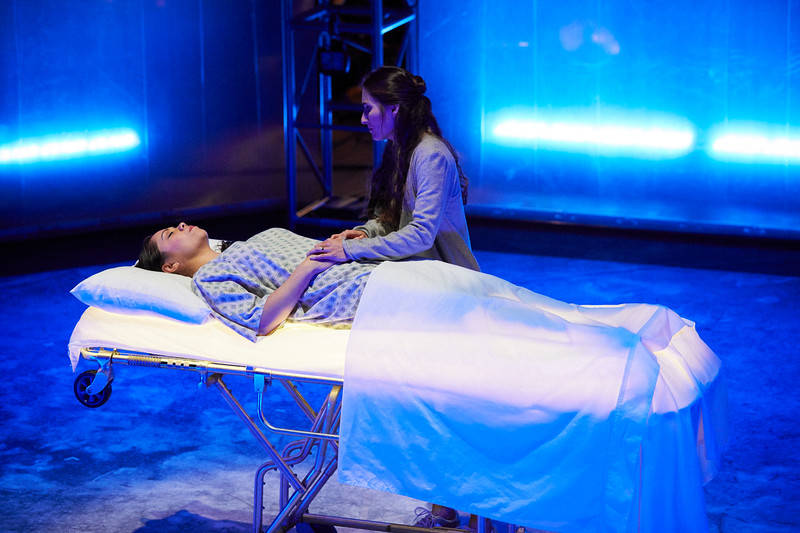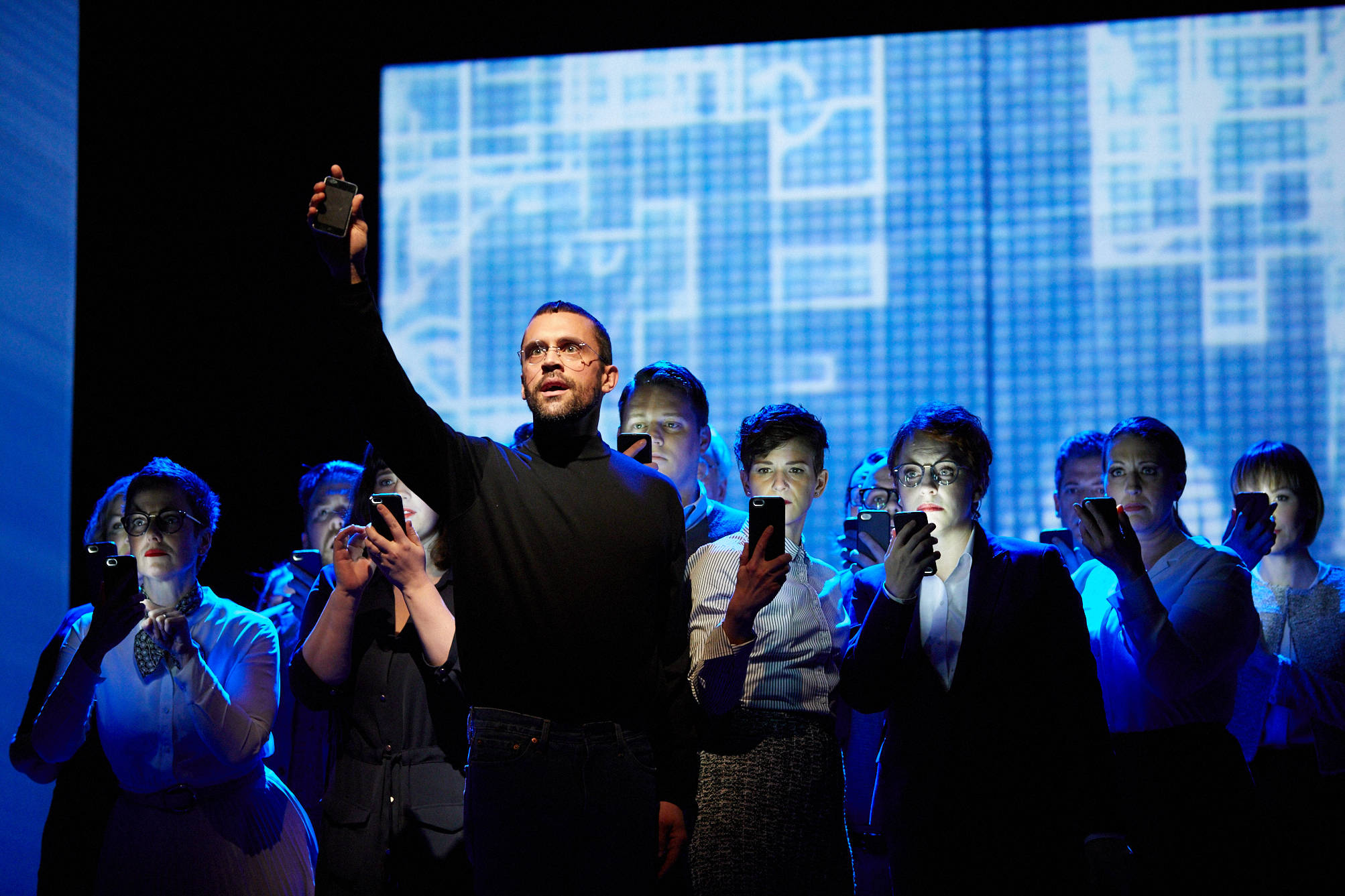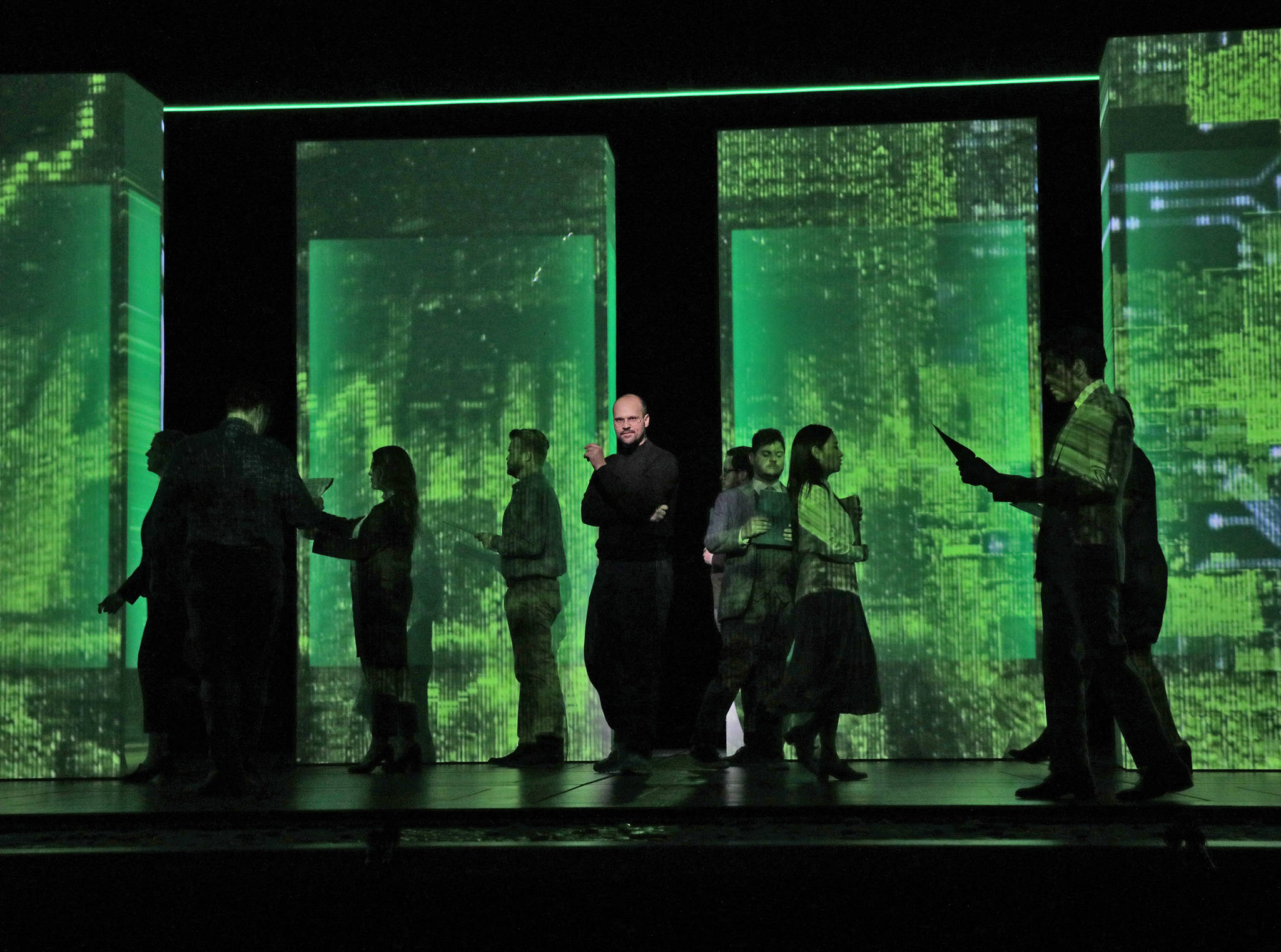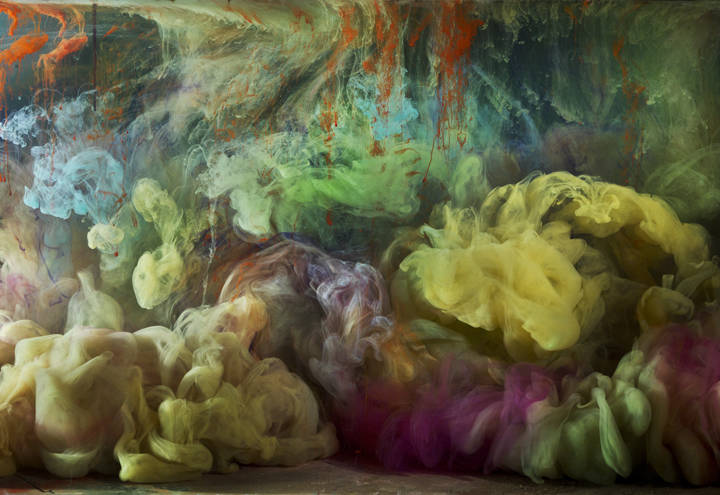The most striking image in O+E, Seattle Opera’s retitled production of Gluck’s Orpheus and Eurydice (1762), is its interpretation of Hades. As the title heroine, O, travels to the underworld to rescue her beloved, the realm’s five demon guardians are decked out in martial gear (specifically Northwest paramilitary survivalists, it looks like) and the focal gesture of Kathryn Van Meter’s choreography for them is the convulsion of a bullet-pierced body. The loveliest one is the white parachute/train Eurydice, aka E, flourishes on her entrance as she and O are briefly reunited. Such simple but effective notions are the hallmark of this unobtrusive reimagining, directed by Kelly Kitchens.
The body of the narrative is the classic Greek myth, but the production’s framing device brings it up to the present(ish) day, with O (Magda Gartner) standing vigil for her hospitalized lover, E (Tess Altiveros). Since Gluck’s original Orpheus was written for a female voice, the difference here is theatrical rather than musical, with O innovatively represented as a female character. The third vowel in the cast is A, for Amor (Serena Eduljee): the personification of love allegorized as a surgeon, a healer.
O+E is performed in a rehearsal room in Seattle Opera’s Terry Avenue studios with the small orchestra, led by Lucy Tucker Yates (who also wrote the elegantly poetic English translation), tucked behind translucent curtains. (Tiered seating has been added; it’s become a three-quarter-round theater.) No formal sets are utilized—and none needed; if you can’t tell, for example, from Gluck’s celestial/pastoral music that Act 2, Scene 2 is set in the Elysian fields, no visuals would help. During Sunday’s performance, the orchestra sounded a bit scrappy here and there, but the entrance of the 13-voice choir (which Gluck uses a lot; they’re practically a fourth character) was a satiny blanket of sound.
O+E
June 7–10, Seattle Opera Studios, $45, seattleopera.org
gborchert@seattleweekly.com








